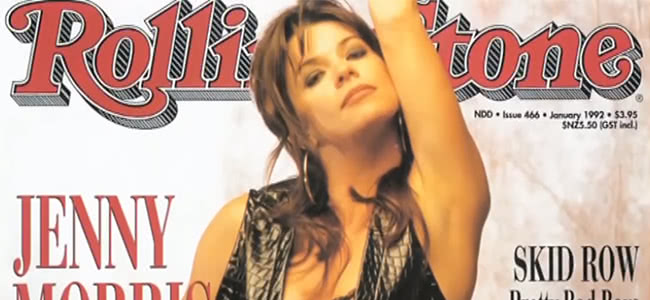Boasting ARIA Award wins and hit singles, Jenny Morris was one of Australia’s best known pop stars and one of its most treasured voices, with countless artists, including INXS, seeking out her vocal talents.
But about ten years ago, Morris stepped away from the stage. The New Zealand-born Australian singer, who found success as a member of The Crocodiles and trio QED and later as a solo artist, vanished without explanation.
Now, Morris has revealed the tragic reason her career had to be cut short. During a recent appearance on ABC’s Australian Story, Morris revealed she has a rare neurological condition affecting her voice.
The ARIA winner has been diagnosed with spasmodic dysphonia, which causes involuntary spasms in the larynx. The condition means Morris is no longer able to sing and has forced her into retirement from the stage.
“I sound like a 50-year-old crone who’s been smoking three packs a day for 30 years, and not in a sexy way,” she told Australian Story. “I have no idea whether I will sing again. At this point, I can’t see that I would want to charge people to hear me sing.”
Morris first began noticing 10 years ago that her singing voice was not performing the way she wanted it to. Her speaking voice soon began to sound “croaky”, forcing Morris to seek professional medical help.
Morris said the diagnosis was “a terrible loss” for someone who has been singing all her life, but she will remain active in the music industry. “I think having issues with my voice is not a reason to shy away from the world,” she said.
[include_post id=”451680″]
“It’s just a glitch and it’s not a good enough reason not to do what you’re passionate about.” While speech therapy brought some relief, Morris decided a performance at Sydney’s Taronga Park Zoo would be her last.
These days, Morris continues to chair the board of the Australasian Performing Rights Association (APRA) and is also the co-founder of an annual event called The Art of Music, which brings together some of Australia’s top artists and musicians to raise money for music therapy.
“Jenny came out of nowhere with the most succinct and beautiful idea for such an important cause, and it has brought a whole community of people together,” said award-winning artist Ben Quilty, who’s participated every year since the event’s inception.
“It’s hard not to think that Jenny was even unconsciously aware that the charity she supports is giving [disadvantaged people] the ability to communicate… She must feel a huge sense of achievement out of that. If she doesn’t, she’s mad. We all see it and the arts community sees her as a real hero.”




































